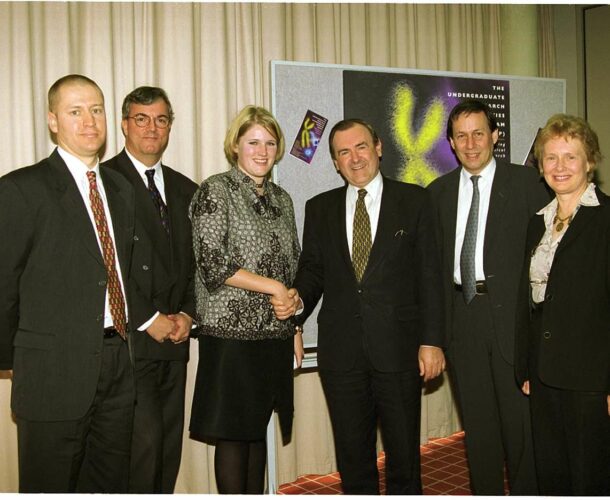The Walter and Eliza Hall Institute is committed to investing in the future of medical research; talented young researchers are vital for this development.
Professor Doug Hilton was a postdoctoral fellow at Massachusetts Institute of Technology (MIT), where a program called UROP – undergraduate research opportunity program had been created. “What I saw in Boston was 18-year-olds in their first year of science at MIT coming into the labs and doing their own research projects – not wash glassware, not making solutions, but working with a senior PhD student or postdoctoral scientist on their own research projects,” he says.1
Experiencing real life in a research laboratory
The UROP program allows undergraduate students to work on research projects throughout the year part-time and then full time in the university holidays. Students can be experimental and based in a laboratory, or analytical involving computational work and bioinformatics.
Hilton initiated the program in Australia, launching the program at the institute.
Hilton says: “There’s probably 200 or 300 undergraduates at any one time in the country that are getting a taste of what research is like. For some of those, that will really galvanise them and they’ll say, ‘Research is for me. I want to go ahead and do an Honours degree and a PhD and I want to be a researcher’. But equally, some of them might say, ‘I thought research was for me, but now I’ve had this experience, I realise I’d much prefer to do teaching or work in patent law’. That’s a great outcome as well. What we want to do is allow talented people to make informed decisions.2”
The program is administered in Victoria by Biomedical Research Victoria and supported by a number of universities and medical research institutes around Australia.
1 A conversation with Professor Doug Hilton, 2008, NHMRC, Canberra, ACT, viewed 18 June 2014



